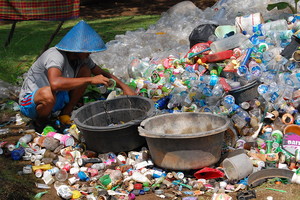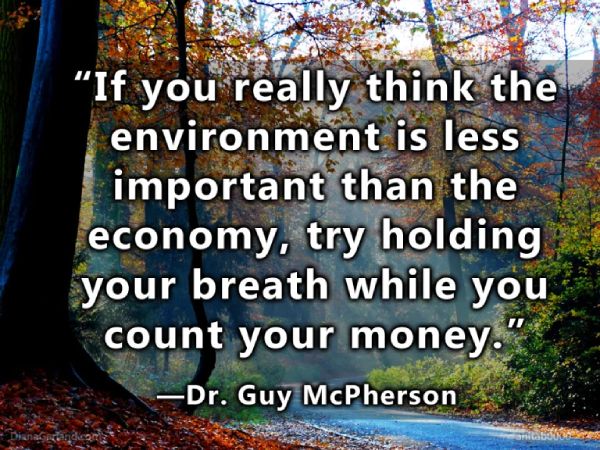Source: Global Times | Opinion Image: Ikhlasul Amal | Sorting Plastic ![]()
In the West, "recycling" is always framed in terms of the individual, rather than the corporation's choice to package and to do so in plastic. Of the 7 plastics with recycling codes, only 2 are actually recycl-able in most of the US, but focusing on individuals' recycling has successfully shifted blame for half a century while corporate-capitalist culture turned life on our planet into worthless dollars. - Ed.
When the US is needed for public good, it is often absent. According to media reports, the governments of 187 countries have agreed to control of the movement of plastic waste between national borders with the aim to limit plastic waste pollution, regrettably the US is not among them.
The agreement was made after 12 days of negotiations at an UN Environment Assembly in Geneva. Participants agreed to the new provision in the UN-supported Basel Convention, which regulates the trans-boundary transfer of hazardous materials. The US has not even ratified the treaty.
But exports of plastic waste from the US are the largest in the world. In 2018, the US exported 157,000 large shipping containers of mixed plastic waste to developing countries, which already suffer from plastic pollution.
Developed countries believe that plastic waste would be recycled in those developing countries. However, much of the waste cannot be recycled and is either dumped, burned, or thrown into the ocean.
Last year, China, once the world's largest waste importer, introduced a tightened ban on solid waste imports, given rising public awareness of the environment and the country's green development drive. The ban, however, triggered criticism from Western media saying that the ban made Southeast Asian countries such as Malaysia and Thailand absorb more waste from the US. But China has not created the problem. Rather, many developing nations are now trying to follow China's lead with their own restrictions on non-recyclable waste. Malaysia issued a ban on imports of plastic waste after China.
No developing country wants to be a dumping ground. While the US has benefitted by exporting waste to developing countries, it should realize that this is not a solution to plastic pollution. It should reconsider what to do with its waste in the long run - reducing consumption is imperative as current per capita waste generation in developed countries is much higher than in developing countries.
But in the issue of plastic waste transfer, the US' stand is opposite to most countries in the world and it has become a mere bystander to one of the world's most important environment protection treaties. According to a report by National Geographic, US observers in Geneva argued against amending the Basel Convention, suggesting voluntary measures would be more effective than binding measures to curb plastics pollution and better infrastructure in developing nations to deal with trash would be more effective. Obviously, the US still views developing nations as its "dumping ground" and still wants to shift its burden to other countries.
Perhaps the world should no longer expect the US to shoulder the responsibility of a world leader and act in the interest of all humanity. As countries around the world begin to understand the urgency of the plastic pollution issue and assume their duty, the only thing on the mind of the US is its own self-interest.
Global Times
Global Times is an excellent weekday source of news and of insight into China's more reserved, respectful culture. Recommended: Home Page, Opinion/Op Ed, and Hu Says videos. -Ed.









